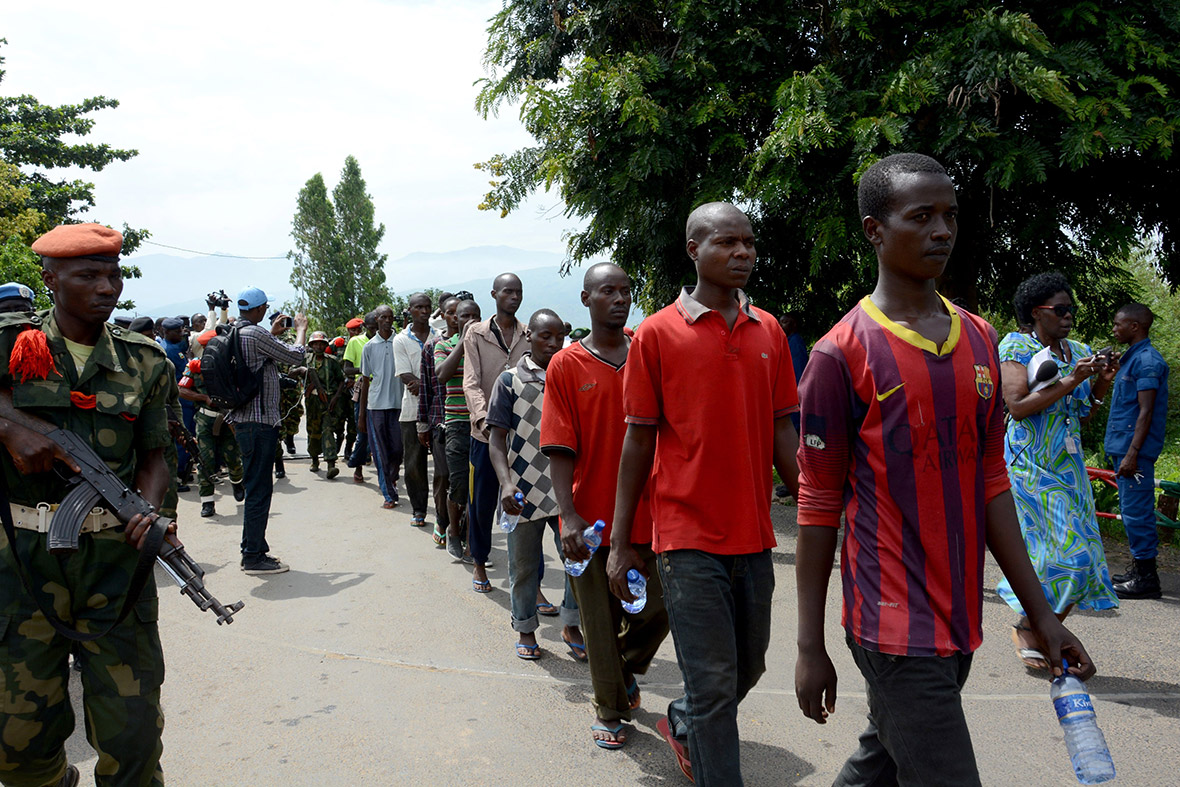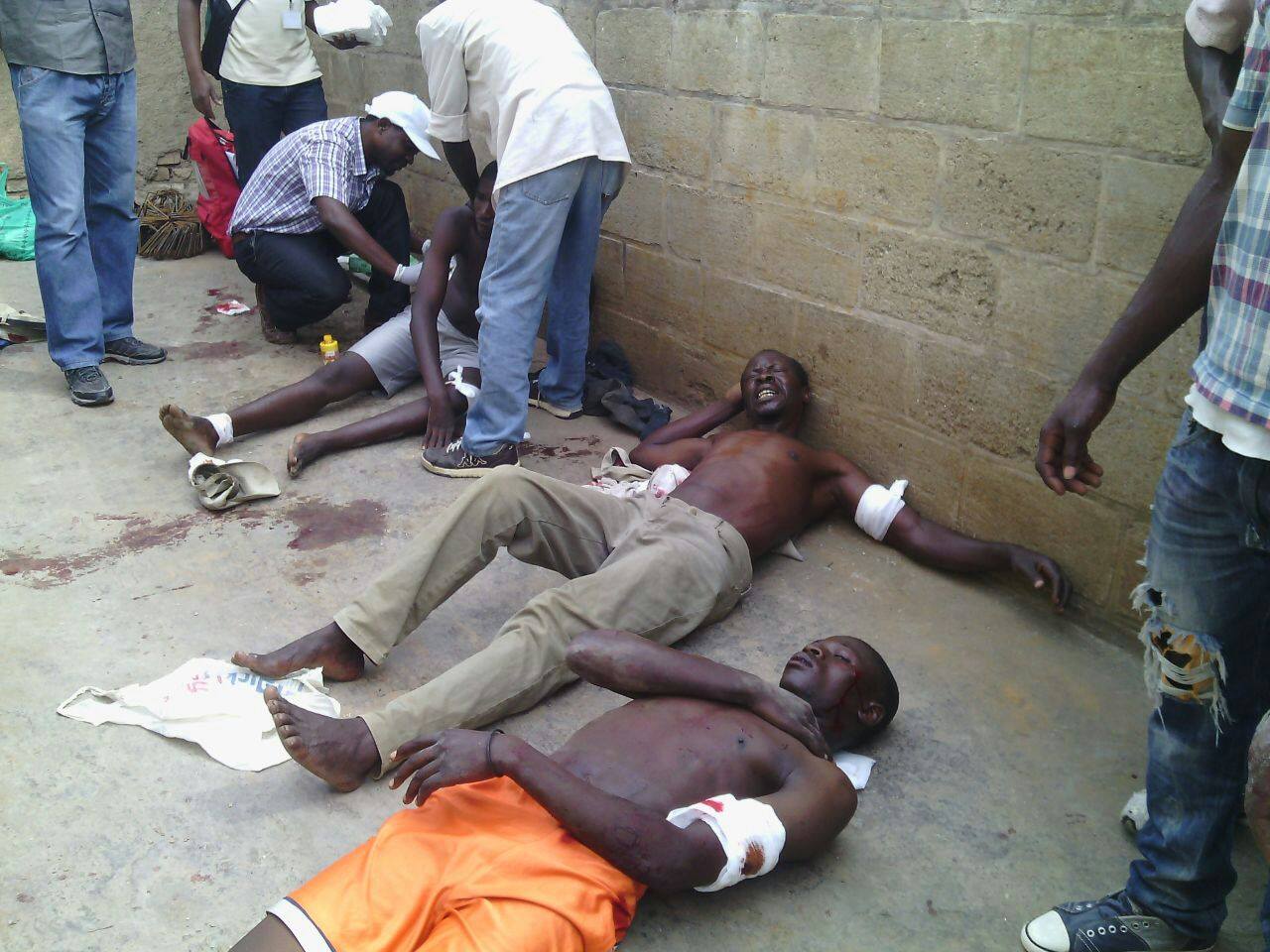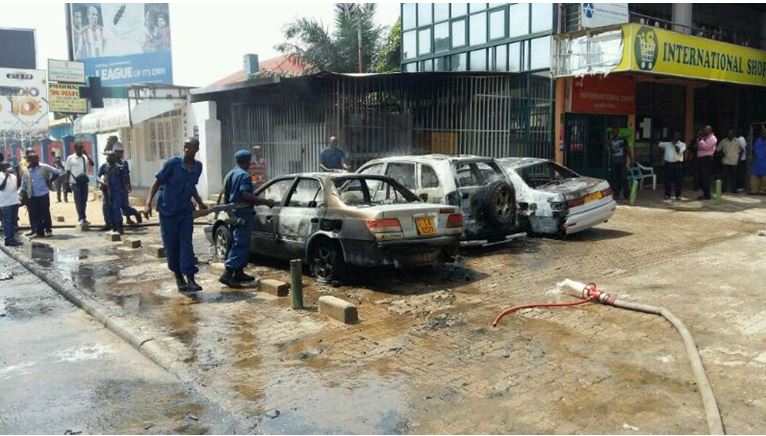'We are ready for war' – Burundi's rebel groups and how they plan to topple President Nkurunziza
IBTimes UK speaks to a leading figure within the armed rebellion active inside the country.
As Burundi's deadly conflict entered its 20th month, IBTimes UK spoke to a leading figure within the armed rebellion active inside the small African nation, to take stock of the situation.
The bloody crisis that has killed thousands, pits supporters of President Pierre Nkurunziza against those who say that his re-election in July 2015 for a third term violated the nation's constitution.
After a failed coup led by a disloyal faction within the army's high command, the government intensified its crackdown on dissidents and most of those arrested or disappeared today are young men and women accused of participating in or supporting opposition groups.
There are two new distinct armed rebels groups, the Republican Forces of Burundi (Forebu) and Resistance for the Rule of Law in Burundi (RED-Tabara), which rose up at the end of 2015, and whose attacks have also left dozens dead.
What are they fighting for?
In the absence of constructive talks, the growing armed opposition said it formed a force "to protect the population". The groups pledged to oust the controversial Nkurunziza to install a transitional government and lead to free and credible elections.
Besides earlier sporadic gun battles in the capital, Bujumbura, Forebu and RED-Tabara are linked to grenade attacks and attacks against military bases.
"They are both active, but without any real impact because they are in a perpetual reorganisation," the source, who spoke under condition of anonymity for fear of disclosing his position, told IBTimes UK. "They are still there and are organising themselves, they don't disarm. We are ready for war."
RED-Tabara
RED-Tabara is composed of former soldiers and police, and disgruntled youth. With "some 2,000 recruits", it is by far the largest of both groups.
"RED-Tabara has the chance of having a large number of recruits and it means they can mobilise young people - young military and civilians alike. They could easily raise an army of 20,000 or 30,000 men. But they won't - they will start with whom they already have if they find enough arms," said the source.
Forebu
Forebu, which has so far attracted a smaller number of recruits - "around 100" - is led by General Godefroid Niyombare, who headed the foiled coup against Nkurunziza in May 2015. It boasts a number of senior security forces officials in its ranks, including General Philbert Habarugura, who is leading the force, and Colonel Gilles Ndihokubwayo, who became army chief of staff last year.
"Forebu is mostly made up of army officers from the Force de Défense Nationale (FDN), many who joined following the coup d'état and others who continue to join. It is a small number, without any troops," said the source.


RED-Tabara and Forebu fight for control
The conflict between both groups, who have so far failed to unite, is about control, the source said. "Army officers from Forebu want to command RED-Tabara's troops. RED-Tabara has told Forebu they can help them wage war, but they won't relinquish control over to them."
Besides dominance issues, the groups are also struggling to circulate in Burundi, where they have limited scope to establish training bases, and have therefore organised themselves in rear bases in forests in neighbouring Democratic Republic of Congo (DRC).
"There are few places for them to go in Burundi, and this means they only have very limited logistical means. RED-Tabara, for example, has parts of its bases in Congo and it is trying to expand there with a few hundreds of fighters. Another part is in refugee camps in Rwanda and Uganda," the source explained.
"The real issue, is how long will it take? Arms are not easily accessible, and they don't have enough money to feed thousands of fighters. They can only feed a few hundred now, so they have to keep small numbers."


Lack of funding and support for rebels
The insufficient funding is due to a lack of support from regional powers. According to the source, the fringes of the opposition willing to wage war can only do so with "regional support" from neighbouring Tanzania, the DRC or Rwanda - countries which have so far stayed away from the conflict, for different reasons.
Members of Burundi's opposition claim Tanzania has vested interests with Nkurunziza because several high level individuals control parts of the Burundian economy including in the transport, telecoms and arms sectors. "They are not ready to abandon those interests," the source explained.
The DRC, meanwhile, "can not shoot itself in the foot because it has the same problems". President Joseph Kabila has been criticised for recent attempts to prolong his tenure into a third term, a move that has sparked violence and rising political tensions ahead of the country's upcoming elections
"[President] Kabila does not want to relinquish power and will not be seen to promote the contrary in Burundi," the source highlighted.
Burundi's neighbour Rwanda has come under terrific pressure for years following the 1994 genocide, and has its own priorities today. While Nkurunziza is reported to have close ties with the Rwandan opposition, "it is something that is worrying the Rwandan government, but not to a point to push Kigali to act first".
"Rwandans are concentrating on developing the nation, and want to become an economic power in the sub-region. Burundians are not a priority for them. Of course, the Burundi conflict has posed major problems on Rwanda's southern borders, but they can handle that without getting involved. They cannot risk to lose credibility and the cessation of international assistance."


Engaging the armed opposition in peace process
In the source's opinion, the rebels' inability to wage war is impacting the ongoing Inter-Burundi dialogue, led by facilitator and former Tanzanian President Benjamin Mkapa.
Warring parties have been encouraged to participate in talks to solve the deadly conflict. The latest round resumed under difficult circumstances after several key political actors boycotted the discussions.
"It is clear that, in the conditions in which we are, if the opposition is not armed and is not fighting on the military ground, it always has difficulties to tilt the balance in towards real discussions," the source claimed. "Mkapa is on the strongest' side - Nkuruniziza's government today has a comfortable military position because he sells stability, and Mkapa wants to sell Nkurunziza's idea of a government of national unity."
"It will not resolve anything, just give political posts to a few opposition leaders, and sell a new agreement to the international community, to force it to resume its cooperation with Burundi, to carry on business as usual until we go to elections in 2020," the source added, in reference to the President's hints that -he may run for a fourth term. "Nkurunziza will organise, rig and win those elections."
387,000 people have fled Burundi's crisis that has so far left thousands dead. According to Burundian human rights organisations, some 50 people are reported killed each week. This figure is revised upwards to 30 killed a day by civil society representatives and the Burundian opposition. The UN refugee agency said it expects the number of Burundian refugees to exceed 500,000 in 2017.
© Copyright IBTimes 2024. All rights reserved.







